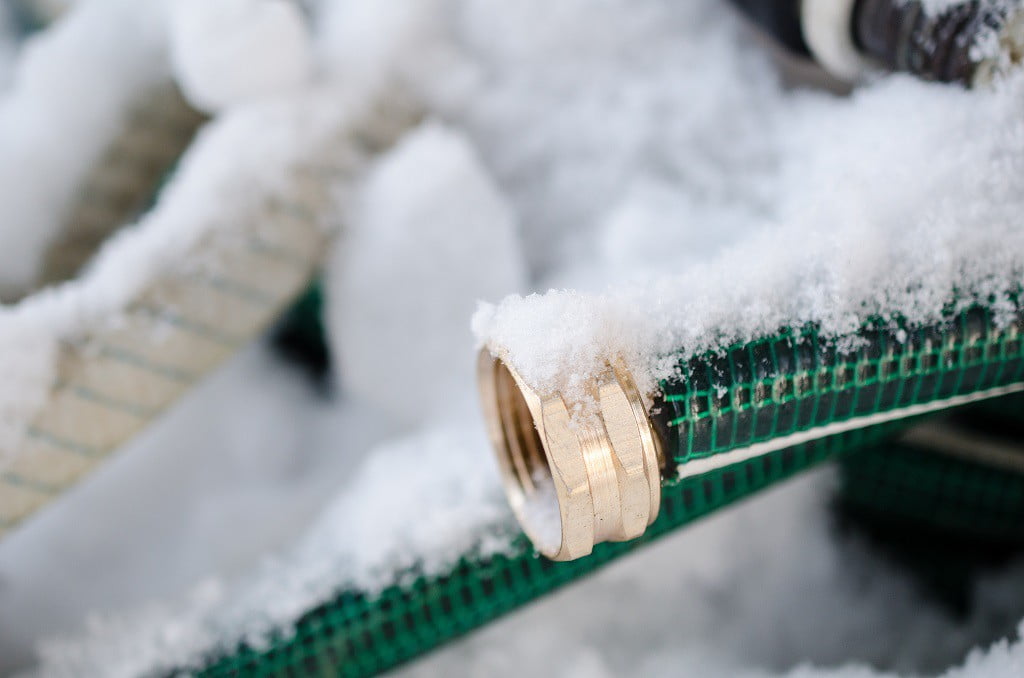Protecting your home from winter weather conditions is an important item for any homeowner’s to-do list. There are many ways that the cold, snow, and ice can damage your home… A frozen water pipe can burst and flood your home or basement. An ice dam in your gutter can cause water to seep into and saturate an interior wall. A too heavy load of snow on your roof can cause it to collapse…
So what can homeowners do to be prepared? Here’s a checklist of items that should be addressed before the weather turns cold:
[hr_invisible]
GET THE EXTERIOR OF YOUR HOME READY
| Make sure all windows are closed tight and locked to prevent drafts. You may also wish to use weather-stripping around your doors to help prevent drafts. | |
| If your home has basement windows with window wells, consider protecting them with plastic shields. | |
| Switch out summer screens with glass replacements from storage. Install storm windows if you have them. | |
| Check your home’s flashing to ensure water cannot get through. | |
| Replace any worn shingles on your home’s roof. | |
| Clean out the gutters and use a hose to spray water down the downspouts to clear away any debris. Then drain and store all of your hoses before the first hard freeze. | |
| If you don’t have frost-proof spigots, close the interior shut-off valve leading to that faucet, open and drain the spigot, and install a faucet insulator. | |
| Drain air conditioner pipes, and if your unit has a water shut-off valve, turn it off. | |
| If you have an outdoor kitchen, don’t forget to winterize it to prevent damage. |
GET YOUR EQUIPMENT READY
| Drain the gas from your lawnmower and move it to storage. | |
| Service/tune up your snowblower. You don’t want that first snow to fall without your snowblower being ready. | |
| Replace work rakes, snow shovels, and ice choppers as needed. If you have a snow blade for a vehicle, you’ll want to install that as well. | |
| Stock up on ice melt, sand, or whatever you prefer to use on slippery sidewalks and driveways. |
GET YOUR FURNACE READY
| Call an HVAC professional to inspect your furnace and duct work. | |
| Stock up on furnace filters and change them monthly. | |
| Consider switching out your current thermostat for a programmable version. | |
| Remove all flammable material from the area surrounding your furnace. | |
| Ensure proper ventilation of heating and other warming sources. |
MAKE FIRE PREVENTION A PRIORITY
| Don’t overload electrical circuits with space heaters, and never leave them running unattended. | |
| Check cables and cords. Frayed and overloaded cables can cause fires. You should never use an extension cord with a space heater. | |
| When running your space heater, make sure there is at least 3 feet of space between it and anything flammable. | |
| If you have a fireplace, make sure your chimney is clean and clear of debris. Also make sure the damper is functioning properly. | |
| Install working smoke alarms on every level of your home and test them monthly. |
Source: Rainbow International Restoration and Nationwide
[hr]
If damage should occur…
Despite your efforts, if damage should occur to your home, whether from fire, water, or smoke, contact our claims team right away to report your loss. You’ll also want to contact a trained, qualified professional to help you handle the damage. Any delays could cause further, unseen and potentially serious damage to your home and possessions.

